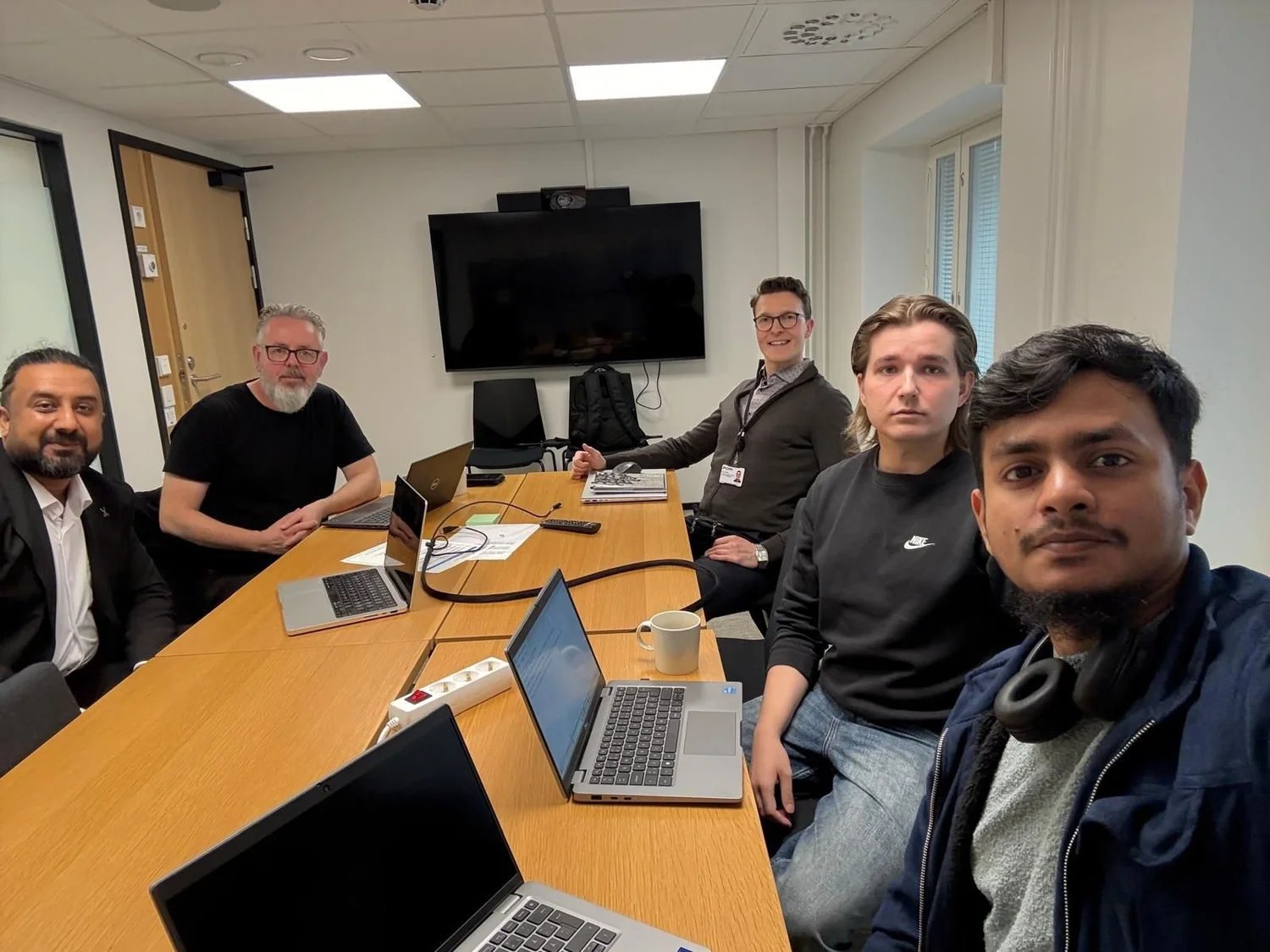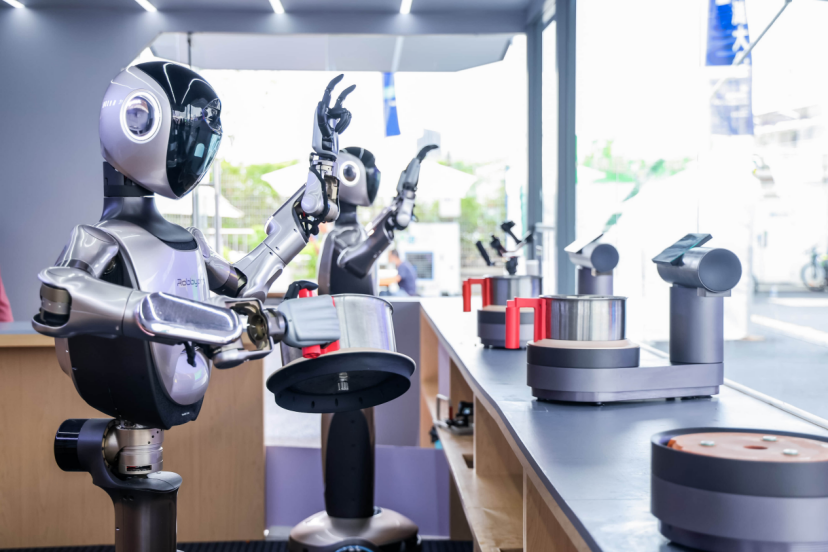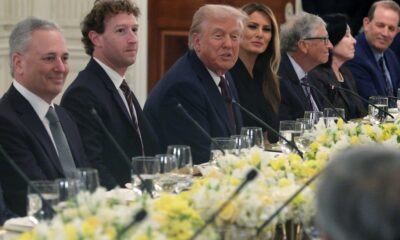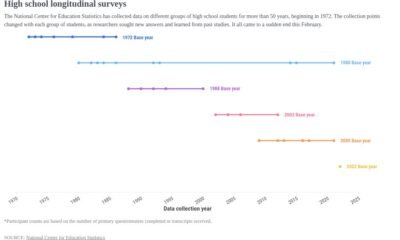Tools & Platforms
Cruz to introduce proposal for regulatory AI sandbox program within OSTP

Senate Commerce Committee Chairman Ted Cruz said he would introduce legislation to establish AI sandboxes to allow companies “room to breathe” without running up against regulations.
Cruz announced that proposal as well as a legislative framework for AI policy ahead of a Wednesday hearing before the Subcommittee on Science, Manufacturing, and Competitiveness on the administration’s recent AI Action Plan. The concept of regulatory sandboxes were among the more than 90 policy recommendations outlined in that document.
“Under the Sandbox Act, an AI user developer can identify obstructive regulations and request a waiver or a modification, which the government may grant for two years via a written agreement that must include a participant’s responsibility to mitigate health or consumer risks,” the Texas Republican said during the hearing. “To be clear, a regulatory sandbox is not a free pass. People creating or using AI still have to follow the same laws as everyone else.”
The proposal comes as President Donald Trump has taken an approach to AI that aims to clear the way for companies working on the technology. Identifying and removing regulatory barriers to AI and limiting federal funding to states with AI regulations deemed “burdensome,” for example, were also recommendations from that plan.
During that hearing, White House Office of Science and Technology Policy Director Michael Kratsios voiced support for the forthcoming legislation and said he was excited to work with Cruz on the bill. He also said that the approach had already been successful in the commercial drone industry.
Trump signed an executive order during his first administration to create a pilot program that established sandboxes for drone operations, Kratsios said. That work resulted in data that was used to help the Federal Aviation Administration promulgate its recently published draft drone rule.
“I have personally seen the power of these sandboxes to be able to allow great American minds and innovators to actually put their tools to the test in real-life situations, and from there, be able to provide the necessary valuable feedback back to the regulators to be able to create the right regulatory frameworks,” Kratsios said.
Whether or not the proposal has support across the aisle isn’t yet clear.
Also during the hearing, Sen. Lisa Blunt Rochester, D-Del., said that her state launched its own AI sandbox to allow companies to test the technology, which aligns with the AI Action Plan. However, she said that while she appreciated Cruz’s proposal, she wasn’t “sure that OSTP is the appropriate place for it — if we need one at all.”
Per a draft of the legislation released by Cruz on Wednesday, which was first reported by Bloomberg, the bill would be able to apply for modifications or waivers to regulations getting in the way of their technologies, and OSTP would coordinate those requests across the government.
The corresponding legislative framework also released Wednesday, meanwhile, focuses on five pillars: Unleashing American innovation, protecting free speech, preventing patchwork regulation, halting nefarious uses against Americans, and defending “human value and dignity.”
Notably for the U.S. government, opening federal datasets for AI model training is nested under the first pillar. There weren’t additional details on that bullet point.
Tools & Platforms
Tampere University GPT-Lab launches AI project with City of Pori

GPT-Lab, part of Tampere University’s Faculty of Information Technology and Communication Sciences in Finland, has begun collaborating with the City of Pori Unemployment Services on the Generative Artificial Intelligence in Business Support (GENT) project.
The initiative will test how AI-driven automation can improve efficiency and reliability in public sector services.
According to a LinkedIn post from GPT-Lab, the kickoff meeting on 3 September brought together project researchers and city representatives to align objectives and set the project roadmap. The work will focus on automating routine inquiries and case handling to reduce the workload of staff, speed up responses to citizens, and free time for tasks that require human expertise.
The project is designed to improve the efficiency, accessibility, and reliability of unemployment services. It will also provide a framework for the responsible use of AI in the public sector.
The GENT project, funded by the Satakuntaliitto Regional Council of Satakunta and led by Tampere University, runs until September 2026. Its broader aim is to bring generative AI expertise to companies and organizations in the Satakunta region. Researchers will work directly with businesses to co-create AI-assisted experiments that enhance productivity, investment efficiency, and competitiveness.
Solutions and materials developed through these experiments will be shared with all companies in the region and can be adapted to individual needs. The project also highlights cooperation between SMEs, public services, and research institutions in Finland.
The ETIH Innovation Awards 2026
Tools & Platforms
Shanghai tech conference showcases AI in action

The 2025 Inclusion Conference on the Bund, which spotlighted the real-world application of artificial intelligence, embodied intelligence, and advanced technologies across various industries and aspects of daily life, kicked off on Wednesday in the Huangpu World Expo Park in Shanghai.
Industry leaders, researchers, and enthusiasts gathered to explore the latest advancements and discuss the future of technology.
Xeonova, a Hefei-based commercial fusion company, aims to accelerate fusion energy development through AI, according to Wang Ge, chief scientist at the firm.
“We are working to integrate AI into our current fusion engineering process,” Wang said. The company aims to use AI to build digital twins of fusion reactors, enabling rapid iteration and optimization in a virtual environment.
In addition to energy, AI applications in robotics garnered significant attention. Boulhol Clement from France, working in social media in Shanghai, said he was excited about the future and impressed by the AI and robot technology.
“I really like all the technology stuff with AI and with robots, and I think some robots are very impressive,” Clement said, highlighting the potential of robots in various fields, including rescue operations.
Tools & Platforms
Global policymakers, executives urge open collaboration to share opportunities of AI-Xinhua
SHENYANG, Sept. 11 (Xinhua) — The 2025 Global Industrial Internet Conference concluded on Monday in Shenyang, the capital of northeast China’s Liaoning Province, having seen Chinese and international guests issue a call for open cooperation to share in the new opportunities presented by artificial intelligence (AI).
The conference brought together government and business representatives from over 10 countries, including Brazil, the United States, the Republic of Korea, Saudi Arabia and China, spanning sectors such as mobile communication, AI and high-end manufacturing. Attendees held in-depth discussions on how to better advance intelligentization, network connectivity and digitalization in economic development.
Piero Scaruffi, founder of Silicon Valley Artificial Intelligence Research Institute, said that AI technology is not a zero-sum game, but rather a catalyst for mutual benefits and shared success. Today’s advancements in AI have benefited greatly from international cooperation.
Tang Lixin, vice president of Northeastern University in Liaoning and an expert on industrial intelligence, told Xinhua that AI has become a strategic technology leading a new technological revolution and industrial transformation. It is a critical strategic resource driving global technology leaps, industrial optimization and upgrading, and overall productivity advancement, exerting profound impacts on economic and social development. Promoting the healthy, orderly development of AI has become particularly urgent, he noted.
“AI presents a shared opportunity for all humanity, as well as a common challenge we all face,” said Hermano Tercius, secretary of telecommunications at the Ministry of Communications of Brazil, adding that in the current complex and ever-changing international environment, strengthening international cooperation in the field of new technologies is crucial.
He said that as the world’s third-largest user of AI, Brazil still lags behind in data center construction. This necessitates collaboration with countries that have advantages in digital infrastructure to achieve complementary benefits and mutual success.
The further advancement of global AI technology hinges on the existence of an open, inclusive environment for innovative collaboration. During the conference, many participants highlighted challenges in areas such as governance frameworks and technical standards that current global AI development faces.
“AI has triggered significant transformations in the technological landscape. Without better compliance-driven rulemaking, it is difficult to predict its future trajectory. Global cooperation is essential to address these challenges,” said Alexandre V. Chidiac, managing partner of Iskandar Group, which is a company engaged in international shipping and trade.
“We advocate for inclusive policies and environments in the field of AI among all nations,” Tercius said. “Only through such efforts can we ensure that no country is left behind in this technological revolution, and build a robust bridge towards shared prosperity and an interconnected future for the world.”
Ben Sassi, general manager of the Warsaw Chamber of Commerce in Poland, stated that there is an urgent global need to strengthen dialogue, enhance mutual trust, and build widespread consensus in areas such as rule-making, technical standards and ethics to promote the healthy development of AI in a united manner.
Over the years, China has made positive explorations and contributed constructive ideas and solutions to the global governance of AI. The country launched the Global AI Governance Initiative in 2023. And last year, the 78th UN General Assembly reached a historic consensus by adopting a resolution on enhancing international cooperation for AI capacity building, which was spearheaded by China.
Participating guests also expressed their willingness to collaborate with China in the field of AI in the future. Pakistan Global Business Alliance Chairman Muhammad Asif Noor Farooqi, for example, said that he hopes China and Pakistan will enhance cooperation within the digital economy to strengthen Pakistan’s intelligent infrastructure. ■
-

 Business2 weeks ago
Business2 weeks agoThe Guardian view on Trump and the Fed: independence is no substitute for accountability | Editorial
-
Tools & Platforms1 month ago
Building Trust in Military AI Starts with Opening the Black Box – War on the Rocks
-

 Ethics & Policy2 months ago
Ethics & Policy2 months agoSDAIA Supports Saudi Arabia’s Leadership in Shaping Global AI Ethics, Policy, and Research – وكالة الأنباء السعودية
-

 Events & Conferences4 months ago
Events & Conferences4 months agoJourney to 1000 models: Scaling Instagram’s recommendation system
-

 Jobs & Careers2 months ago
Jobs & Careers2 months agoMumbai-based Perplexity Alternative Has 60k+ Users Without Funding
-

 Podcasts & Talks2 months ago
Podcasts & Talks2 months agoHappy 4th of July! 🎆 Made with Veo 3 in Gemini
-

 Education2 months ago
Education2 months agoMacron says UK and France have duty to tackle illegal migration ‘with humanity, solidarity and firmness’ – UK politics live | Politics
-

 Education2 months ago
Education2 months agoVEX Robotics launches AI-powered classroom robotics system
-

 Funding & Business2 months ago
Funding & Business2 months agoKayak and Expedia race to build AI travel agents that turn social posts into itineraries
-

 Podcasts & Talks2 months ago
Podcasts & Talks2 months agoOpenAI 🤝 @teamganassi





















